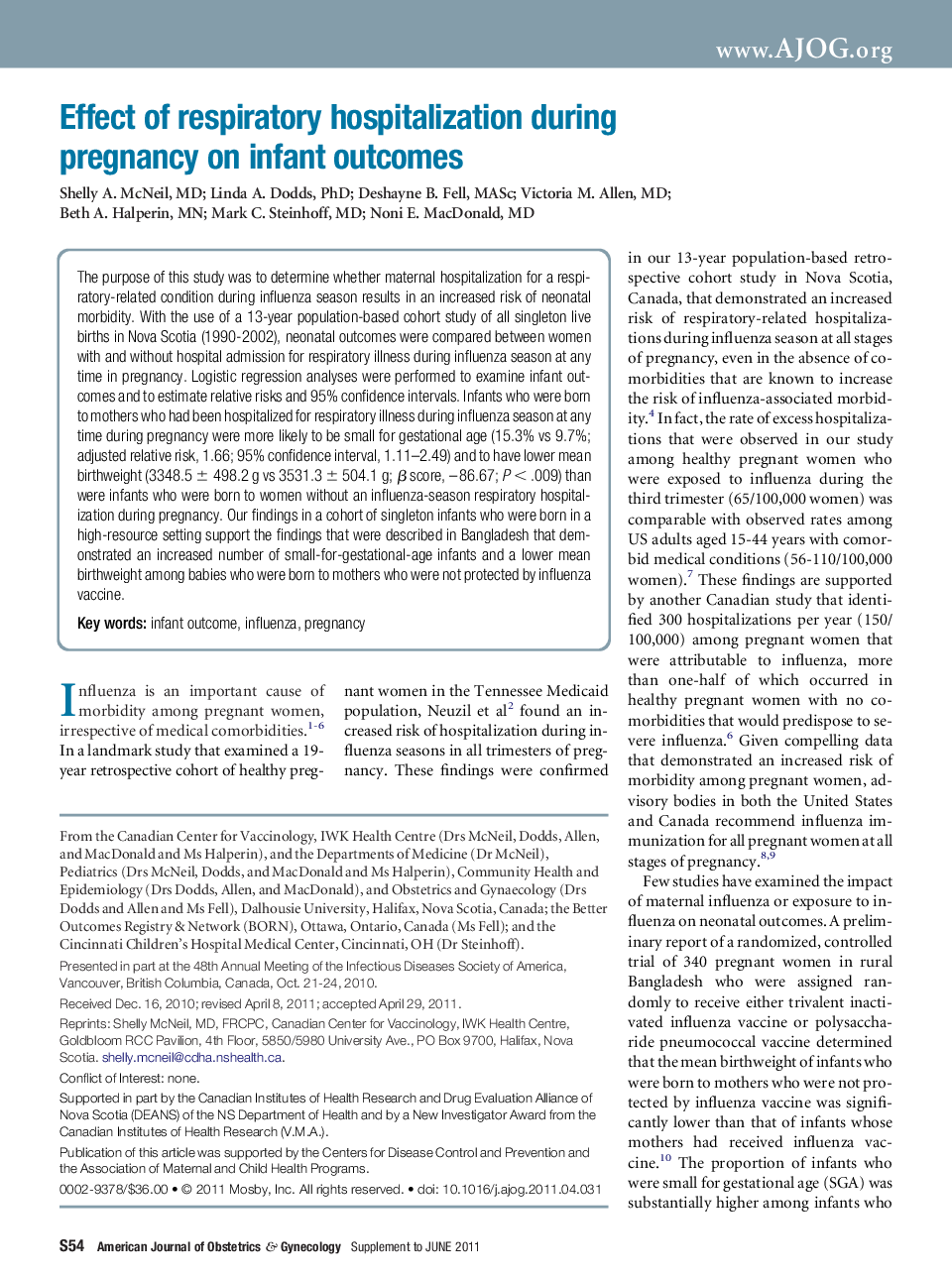| Article ID | Journal | Published Year | Pages | File Type |
|---|---|---|---|---|
| 3436323 | American Journal of Obstetrics and Gynecology | 2011 | 4 Pages |
The purpose of this study was to determine whether maternal hospitalization for a respiratory-related condition during influenza season results in an increased risk of neonatal morbidity. With the use of a 13-year population-based cohort study of all singleton live births in Nova Scotia (1990-2002), neonatal outcomes were compared between women with and without hospital admission for respiratory illness during influenza season at any time in pregnancy. Logistic regression analyses were performed to examine infant outcomes and to estimate relative risks and 95% confidence intervals. Infants who were born to mothers who had been hospitalized for respiratory illness during influenza season at any time during pregnancy were more likely to be small for gestational age (15.3% vs 9.7%; adjusted relative risk, 1.66; 95% confidence interval, 1.11–2.49) and to have lower mean birthweight (3348.5 ± 498.2 g vs 3531.3 ± 504.1 g; β score, –86.67; P < .009) than were infants who were born to women without an influenza-season respiratory hospitalization during pregnancy. Our findings in a cohort of singleton infants who were born in a high-resource setting support the findings that were described in Bangladesh that demonstrated an increased number of small-for-gestational-age infants and a lower mean birthweight among babies who were born to mothers who were not protected by influenza vaccine.
